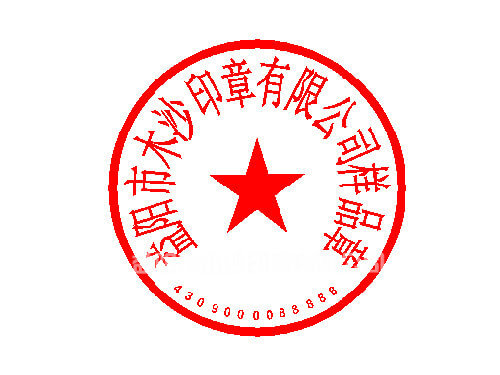
If a Chinese company affixed a fake official company seal when signing a contract with you, probably you are in a scam.
This post was first published in CJO GLOBAL, which is committed to providing consulting services in China-related cross-border trade risk management and debt collection.
In China, in order for a company to formally indicate its intent to accept a contract, it shall do so by the following means:
(1) it shall affix the official company seal on the contract; and
(2) its legal representative had better sign the contract as well.
If you enter into a contract with a Chinese company that you wish to come into effect under Chinese laws, you had better require the company to adopt the above means.
In other words, if a Chinese company uses a fake official seal on the contract, it is highly likely that this company does not want to perform the contract or is carrying out a scam against you.
1. Stamping with the seal is the most common way for Chinese companies to conclude a contract.
In China, the official company seal is a symbol of corporate power. Anything stamped with the official company seal is considered to be on behalf of the company’s will.
So, if you’re going to do business with a Chinese company, the contract has to be stamped with the official company seal. In this way, the Chinese court and law enforcement authorities will recognize that the contract is concluded by the said company.
2. What are Chinese company seals like?
Generally, a Chinese company has several seals, including the official company seal, contract seal, financial seal, and invoice (fapiao) seal, etc.
Among them, the official company seal is with the highest power, just like the lord of the rings, which usually can be used on any occasion. The contract seal is only used to affix the contract. The finance seal and the invoice seal are mainly used in the dealings between Chinese companies and banks and tax bureaus, which usually will not be affixed on the contracts.
The official company seal of a Chinese company is round-shaped, and the mark on the document is red. In the middle of the circle, there is a five-pointed star. Inside of the circle, there is a string of Chinese characters above the five-pointed star, which is the company’s full registered Chinese name. Below the words, there is a string of numbers and letters (18 characters in total), which is the company’s unified credit code.

3. Why do Chinese companies use fake official seals?
Because they don’t want to execute this contract.
It often happens that after you sign a contract with your Chinese supplier, the supplier fails to deliver the goods or the goods do not meet the required standards. Then you file a lawsuit with a Chinese court.
The Chinese court is likely to state, “this Court cannot be sure that the contract was signed by this Chinese company, because the seal is a fake one.”
Or the Chinese court may say, “although the name of the Chinese company in the contract is the same as the name on the official seal, there is no company under this name in China. You cannot sue a non-existent company.”
That being said, however, in China, there are few false official seals.
Because, in China, making official company seals is under supervision by the police. It would be a crime for anyone to make the company seals without authorization, and in the most serious cases, he/she could be sentenced to 10 years in prison.
The official company seal of a Chinese company can only be made by an institution designated by the public security bureau (i.e., a police station), and shall be filed with the public security bureau for record-filing. The seal is made with anti-counterfeit labels provided by the public security bureau, so that the public security bureau can identify whether the seal is genuine.
Most businessmen in China are aware that forging an official company seal is a crime.
However, one cannot exclude the possibility that some Chinese companies may take advantage of foreign companies’ ignorance and use forged seals in cross-border transactions. Therefore, it is still advisable for you to examine the stamp.
4. How to know whether the Chinese company official seal is real?
(1) Appearance
If the official seal is not the same as the previous sample, then it is likely to be fake.
For example, if the Chinese company’s seal on the contract is blue or oval, then it is not real.
(2) Name
There is an extra advantage to having the Chinese company stamp its chop: you may get the full Chinese name of the Chinese company.
As mentioned above, the string of Chinese characters on the official seal is the company’s full registered Chinese name.
If this name is inconsistent with the name of the Chinese company that signed the contract, then the official seal may be false.
If you cannot find out the existence of this Chinese company after verifying it with the Chinese name, then this official seal is fake.
The Cross-border Trade Dispute 101 Series (‘CTD 101 Series’) provides an introduction to China-related cross-border trade dispute, and covers the knowledge essential to cross-border trade dispute resolution and debt collection.
* * *
Do you need support in cross-border trade and debt collection?
CJO Global's team can provide you with China-related cross-border trade risk management and debt collection services, including:
(1) Trade Dispute Resolution
(2) Debt Collection
(3) Judgments and Awards Collection
(4) Anti-Counterfeiting & IP Protection
(5) Company Verification and Due Diligence
(6) Trade Contract Drafting and Review
If you need our services, or if you wish to share your story, you can contact our Client Manager Susan Li (susan.li@yuanddu.com).
If you want to know more about CJO Global, please click here.
If you want to know more about CJO Global services, please click here.
If you wish to read more CJO Global posts, please click here.
Photo by Andrew Haimerl (andrewnef) on Unsplash
Contributors: Meng Yu 余萌








